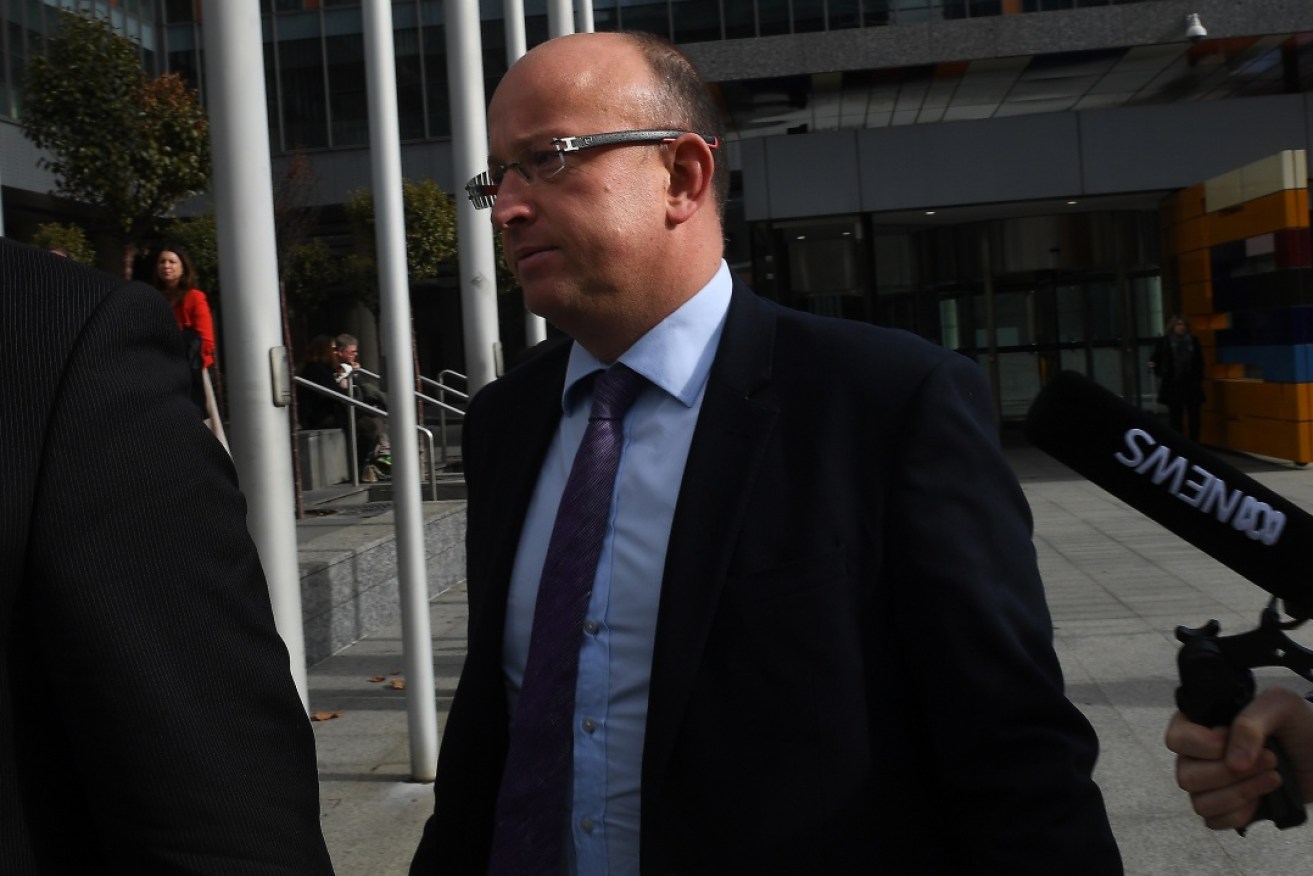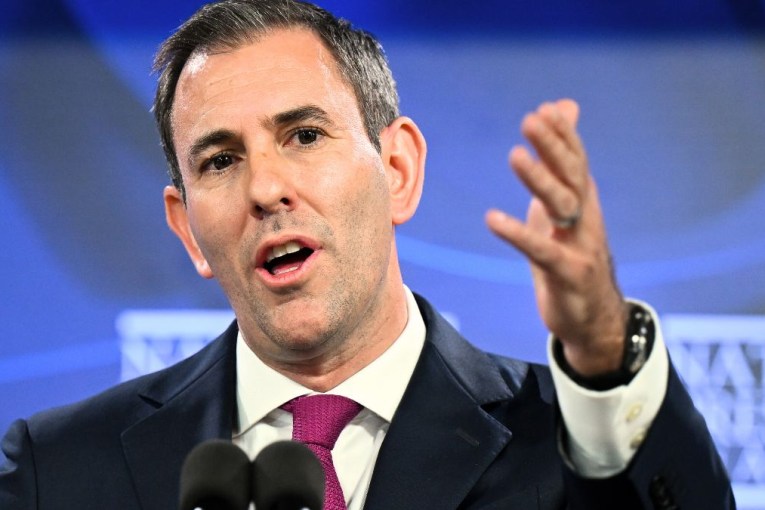NAB admits it had no right to seize money from sale of family home


NAB executive Ross McNaughton leaves the Commonwealth Law Courts in Melbourne. Photo: AAP
In a bombshell admission, NAB executive Ross McNaughton has revealed his bank had no right to take the proceeds of the sale of a businessman’s family home.
Earlier this week, Ross Dillon told the banking royal commission he and his wife sold their family home in Scone for $2.25 million in 2015, expecting to use some of the money to buy a new home in Melbourne. He was shocked when the bank demanded all of it, on the excuse the property was collateral for a business loan.
But NAB’s Mr McNaughton admitted on Thursday he had recently discovered the bank had no direct security over the property for his business loans that gave it the right to act as it had. The property, Goanna Downs, “secured the guarantee of National Music [Mr Dillon’s company] not the debts,” Mr McNaughton said.
“So, in fact, is it fair to say that you now understand that NAB had no lawful entitlement to insist on the full proceeds of Goanna Downs being used to pay down the debt of National Music?” counsel assisting Michael Hodge asked.
“That’s correct,” Mr McNaughton said.
“And you discovered that in the course of preparing to give evidence?”
“Yes I did because I didn’t have an awareness of this prior,” Mr McNaughton replied.
What the Dillons had in fact given was a personal guarantee to NAB over the debts of National Music that could only be accessed by the bank if the business defaulted on its loans. It was not in default when the property was sold although the business was struggling.
“There was no personal balance under guarantee in 2015?” Mr Hodge asked.
“Yes,” Mr McNaughton replied.
The bank had never explained that situation to Mr Dillon.
“You understand from your review of the documents that the way in which NAB dealt with Mr Dillon was to represent that NAB required all of the moneys?” the barrister asked. Mr McNaughton agreed.
Following the sale of property the bank effectively told Mr Dillon that the money would be held to use against his business loans which totalled around $2 million. However this was characterised as a “proposal” to Mr Dillon.
“You regard it as relevant to the making of what you term a proposal by NAB that NAB did not have a lawful entitlement to require all of those moneys to be used to pay down the debts of NAB?”
“No, I don’t,” Mr McNaughton replied.
The bank executive said he didn’t think it was necessary to explain the situation to Mr Dillon because the bank effectively had secondary security over the loans through the personal guarantee from the Dillons. The guarantee was based on their property.
“NAB had the mortgage to support the guarantee and indemnity [so] it might simply say we refuse to release the mortgage unless you do what we want with the proceeds of sale?” Mr Hodge asked.
Mr McNaughton agreed.
Later in his testimony Mr McNaughton agreed that NAB’s communication with Mr Dillon had been “poor”.
Mr McNaughton’s testimony followed a long cross examination of Mr Dillon by NAB’s counsel Wendy Harris QC. She had pressed him on whether he and the bank had ever discussed his plans to buy a house in Melbourne following the sale of Goanna Downs.
That line of questioning appeared irrelevant in the light of Mr McNaughton’s testimony. Mr McNaughton was not asked when he had discovered that NAB had no automatic entitlement to the sale proceeds.








